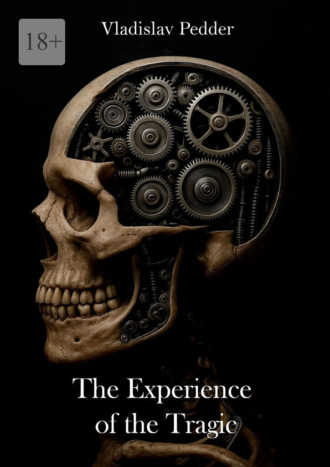
Полная версия
The Experience of the Tragic
In this section, we explore how the idea of meaninglessness has become one of the central challenges of the human mind. We look at the ways in which humans overcome this conflict, from distraction and creativity to philosophical reflection on their role in a chaotic world. But before that, I would like to introduce you to an underrated Norwegian philosopher and mountaineer, Peter Wessel Zapffe (1899—1990), who wrote about the tragic plight of man in this world and who greatly influenced me.
The Tragic Peter Zapffe
Peter Zapffe is a Norwegian philosopher who was little known outside his homeland until recently. His works began to resonate with Russian and English-speaking audiences after the translation of his work Den sidste Messias (Russian: “The Last Messiah”) into these languages, as well as through the influence of the American writer Thomas Ligotti, who in 2010 published his novel The Conspiracy Against the Human Race: A Contrivance of Horror, which reflected Zapffe’s ideas. In mid-2024, Ryan L. Schouler released an English translation of Zapffe’s magnum opus, Om det tragiske (On the Tragic). The Russian edition was published in 2025. Thomas Ligotti’s essay has not been officially published in Russian due to copyright issues and is distributed on the Internet and in samizdat in a translation by revliscap.
In his work, Peter Zapffe4used an approach called biosophy.
Biosophy is an approach in which Zapffe looks at human life and existence through the lens of biology and evolution. He emphasizes that human life is the result of a biological process, and that biology determines many of our existential problems, such as the realization of death and the meaninglessness of existence. Zapffe’s biosophy emphasizes that the biological process is not designed to create meaning in life, but only confronts humans with the challenge of existing in a world devoid of timeless goals. The biosophical method is used to study human existence from a biological perspective. In this way, humans are understood on the basis of what we know about biology, that is, on an empirical basis (Zapffe,
Конец ознакомительного фрагмента.
Текст предоставлен ООО «Литрес».
Прочитайте эту книгу целиком, купив полную легальную версию на Литрес.
Безопасно оплатить книгу можно банковской картой Visa, MasterCard, Maestro, со счета мобильного телефона, с платежного терминала, в салоне МТС или Связной, через PayPal, WebMoney, Яндекс.Деньги, QIWI Кошелек, бонусными картами или другим удобным Вам способом.
Примечания
1
Occam’s razor is a methodological principle stating: “Entities should not be multiplied beyond necessity.” This principle advises choosing the simplest explanations for phenomena while avoiding unnecessary assumptions.
2
A more detailed discussion of active inference and the free energy principle can be found in the book Active Inference: The Free Energy Principle in Mind, Brain, and Behavior (2022) by Thomas Parr, Giovanni Pezzulo, and Karl J. Friston.
3
All Sapolsky quotations herein are translations from the Russian text, as the original English versions were not available at the time of writing.
4
The term “biosophy” was probably first used in 1806 by Ignaz Paul Vitalis Troxler, a Swiss philosopher whose early work was influenced by F. W. J. Schelling and later adopted by Zapffe. Modern biosophists include Jong Bhak, who defines biosophy as “a new way of philosophizing based on scientific and biological understanding.”



